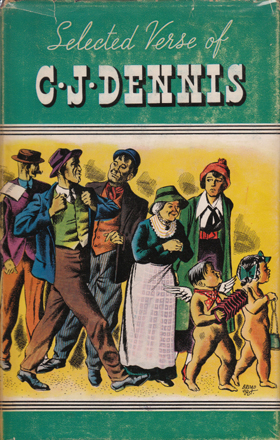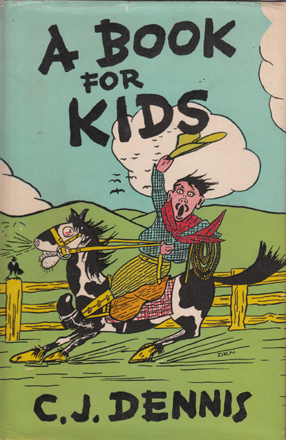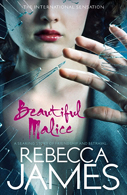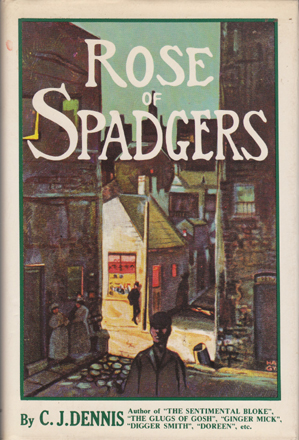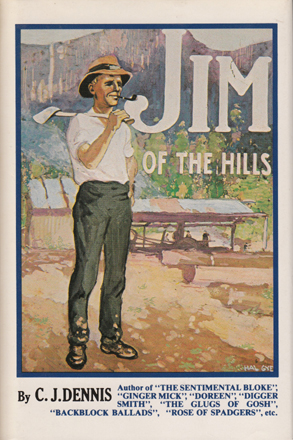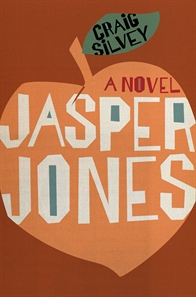Ah! Did you once see Shelley plain,
And did he stop and speak to you.
And did you speak to him again?
How strange it seems and new!
With these well-known lines Richard Le Gallienne begins his interesting book, "The Romantic '90s," published in 1926; and he goes on to write in his breezy way about the men of the time -- the poets and novelists, the playwrights, the actors, and the artists -- many of whom were his personal friends. But there is one in this gallery whom he never met and knew only by correspondence. This is Robert Louis Stevenson. "Since Byron was in Greece," wrote Edmund Gosse to Stevenson, "nothing has appealed to the ordinary literary man so much as that you should be living in the South Seas." For R.L.S. had made his home in Samoa. There, at Vailima, high up in the hills overlooking Apia, he lived in the nineties, and there, at the end of 1894, he died and was buried.
But Stevenson visited Sydney two or three times, and there are still living in our midst a few of those who "saw him plain" and stopped and spoke to him. Death has taken nearly all of them, and only the other day the "Herald" published a notice of the death in London of one of these old Sydney friends. This was Mr. Percy F. S. Spence, the Australian artist, who made a pencil sketch of Stevenson's head in Sydney, and sold it in 1890 to the National Portrait Gallery, London.
If you possess a copy of "The Antipodean," the illustrated annual which was edited by George Essex Evans and John Tighe Ryan and published by George Robertson and Company in Sydney in the nineties you will see some very dainty pen-and-ink sketches by Percy Spence illustrating a poem by Stevenson -"To my old familiars." And as a frontis-piece to the annual there is a signed photograph of RLS taken by Falk. There is no finer portrait of him in existence and as one looks upon his features -- the sprawling hair across the lofty forehead, the large dark, observant eyes the long, straight, flawless nose the uncommon mouth -- the mouth of the brilliant conversationalist and raconteur -- and the straggling moustache and little tuft under the lower lip, one can imagine how the people in Sydney's streets must have turned to look at him. A vivid personality, If ever there was one!
AN INTERVIEWER'S DESCRIPTION
Mr. John Tighe Ryan, who was for many years editor of the "Catholic Press," has given us, in "The Antipodean," an interesting account of the great novelist whose fame goes on increasing with the years. "When I first saw Robert Louis Stevenson," he writes, "he was snugly ensconced in an easy-chair, a book on his knee and a smoking cigarette in his right hand. A glass of sherry was within reach on a little round table occupying the only space not filled by books, magazines, women's hats, and photographs -- the books being mostly presentation copies of poems which poured in upon him the moment it was announced that the master was in Sydney. Wreaths of light blue smoke were floating about the room. He had just risen from an afternoon nap and sleep, he said, was still in his head. I carried away in my memory recollections of the tones of the low, clear, but soft voice, with the slight Scotch accent, which added to the picturesqueness of the phrases; the rare gesture; the thin bronzed face changing with every mood; the fine sparkling eyes, so far apart; the active figure, so spare that in a windstorm it might require the leaden shoes of Philetas. I saw him often after that, for there were many things to attract me to the charmed circle of the Stevensons. The novelist's mother, who has kept a complete record of his boyhood, left for England while the family were in Sydney to arrange her affairs in Scotland before finally settling down in Samoa. The novelist himself is a laborious writer but when his work is done the breath of life is in every touch. Words are to him what colours are to the painter. Careless in personal dress, he is a stickler for literary style. Fame is caught by the turn of phrase. He reads his matter over time after time, fashions and re-fashions, and lives and revels in his work."
Then there is a reference to Mrs Stevenson - not the mother but the wife. "Once or twice, when I called at the hotel, I found Mrs. Stevenson leisurely smoking a cigarette and conversing with a group of friends. She is the most charming of women. There is beauty and character in that dark complexioned face, with the big soft eyes which can be so stern."
And do we not all of us know the beautiful lines which Stevenson himself wrote abou her?
Trusty, dusky, vivid, true,
With eyes of gold and bramble-dew,
Steel-true and blade-straight,
The Great Artificer Made my mate.
IN A "MAD MOOD"
If my recollection is not faulty, Mr. Ryan once told me that the hotel where the Stevensons stayed was the old Oxford in King-street. I think it is the Union Club which is referred to in the following passage:- "A friend of mine saw Stevenson in what he swears was a 'mad mood.' They were at a Sydney club when R.L.S., who is the most genial of companions, suddenly rose from his seat and apparently forgetful of his surroundings, walked hastily up and down the room. His eyes were ablaze, his gaze intent, fierce and savage. Occasionally he stopped to make a few notes on a slip of paper on the table, then resumed his walk with feverish excitement, his lips moving all the time as if in conversation with unseen beings. The others smoked silently or read the papers throwing furtive glances at the spare figure, who seemed to them to have been taken possession of by a foreign devil. He was then engaged on 'The Wrecker,' and perhaps it was at this moment in the club room that he inspired the massacre of the crew of the 'Flying Scud'."
This account of one of Stevenson's "mad moods," when he seemed to be taken possession of by some unseen power and to lose all consciousness of time and place, agrees with what his cousin, Graham Balfour, in the "Life," and H. J. Moors author of "With Stevenson in Samoa," tell us. But in the "Herald" of September 23, there appeared an article by "G. C." which leads one to believe that it was not "The Wrecker" Stevenson was thinking about at the time, but the Rev. Dr. Hyde's attack on Father Damien. His reply is a famous thing. It was in Sydney that the Damien Letter was first printed in pamphlet form. It was printed privately and I have never been able to find out where. I wonder if Lady Jersey knows?
SOME OF HIS FRlENDS
Why do I mention Lady Jersey? Well, she was one of Stevenson's friends, and during a visit she made to Samoa, accompanied by her brother, Captain Leigh, and her daughter, Lady Margaret Villiers, she was herself associated with him in a little book that was privately printed. This was "An Object of Pity," and the year was 1892. The Open letter to Dr. Hyde was printed in Sydney on March 27, 1890.
Mr. Moors, in his book, gives away a secret -- he tells us that our Governor's wife passed herself off under an assumed name on a certain famous occasion. "On August 23, a dinner in Samoa was given by King Malietoa Laupepa to the distinguished visitors. But Lady Jersey was not content with seeing the acknowledged King of Samoa -- she wanted also to visit Mataafa, the rival claimant to the throne. To do this great secrecy was necessary, as it would never do for it to become publicly known that the wife of the Governor of New South Wales had visited the "rebel king"; and accordingly it was as his cousin, 'Amelia Balfour,' that Mr. Stevenson introduced her ladyship to Mataafa, and it was as 'Amelia Balfour' that she was presented with the customary bowl of kava. Despite all precautions, however, news of the visit leaked out and so seriously was it regarded that I believe the British Consul received a severe rap on the knuckles from the Home authorities for conniving at it."
First published in The Sydney Morning Herald, 9 December 1933
[Thanks to the National Library of Australia's newspaper digitisation project for this piece.]
